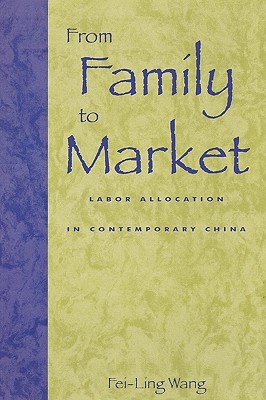
- We will send in 10–14 business days.
- Author: Fei-Ling Wang
- Publisher: Rowman & Littlefield Publishers
- ISBN-10: 0847688801
- ISBN-13: 9780847688807
- Format: 14.7 x 22.5 x 2 cm, softcover
- Language: English
- SAVE -10% with code: EXTRA
Reviews
Description
This book analyzes Chinese history, politics, and economic development through the lens of labor allocation within the world's largest workforce. Capturing the peculiarities, continuities, and changes in the PRC's institutional structure, Fei-Ling Wang examines the segmented nature of China's labor force today. He points to the rare coexistence of four 'labor allocation patterns: ' the traditional family-based system, authoritarian state allocation, community-based labor markets, and the emerging national labor market. China's enduringly stable yet backward institutional structure was based firmly on a mix of family and state institutions; now the addition of market forces highlights the PRC's transitional state. Bolstered with rich case-study detail and Chinese source material, this study argues that the development of labor allocation patterns will profoundly influence China's political and economic development in the coming century
EXTRA 10 % discount with code: EXTRA
The promotion ends in 15d.14:52:16
The discount code is valid when purchasing from 10 €. Discounts do not stack.
- Author: Fei-Ling Wang
- Publisher: Rowman & Littlefield Publishers
- ISBN-10: 0847688801
- ISBN-13: 9780847688807
- Format: 14.7 x 22.5 x 2 cm, softcover
- Language: English English
This book analyzes Chinese history, politics, and economic development through the lens of labor allocation within the world's largest workforce. Capturing the peculiarities, continuities, and changes in the PRC's institutional structure, Fei-Ling Wang examines the segmented nature of China's labor force today. He points to the rare coexistence of four 'labor allocation patterns: ' the traditional family-based system, authoritarian state allocation, community-based labor markets, and the emerging national labor market. China's enduringly stable yet backward institutional structure was based firmly on a mix of family and state institutions; now the addition of market forces highlights the PRC's transitional state. Bolstered with rich case-study detail and Chinese source material, this study argues that the development of labor allocation patterns will profoundly influence China's political and economic development in the coming century


Reviews